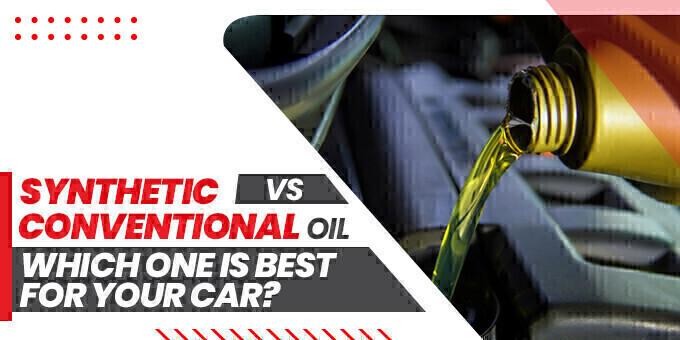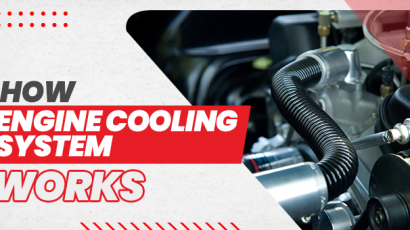
The total number of miles your car covers every day and its frequency might determine how often you need to change the car’s oil per year. The fact that oil is a major component to get your car running must not be ignored. The quality and safety of motor oil in your car matters a lot.
As a car owner, you must have heard about synthetic and conventional oil. The question is, which one is the right fit for your car?
Synthetic oil vs. conventional oil
Conventional motor oil comes from refined crude oil, while synthetic oil is made using chemical compounds featuring the best aspects of crude oil. Because of this, synthetic oil has fewer contaminants, meaning your car has a lower risk of engine sludge and buildup. This results in cleaner motor oil that flows with higher viscosity.
But is synthetic oil better than conventional oil for your engine?
Yes, it is. Even though conventional mineral oil can give your engine sufficient performance and lubrication, synthetic oil will give your engine overall better protection and performance. This is because synthetic oils use better quality base oils. Comparatively, conventional oils will use less-refined base oils that oxidize and acidify faster. They are less chemically stable, break down faster, and lose their protective characteristics.
Synthetic oils can make your engine perform better and keep it more protected than conventional and synthetic blend motor oils can. Moreover, synthetic oils are able to reduce wear and tear on your engine and protect it against high temperatures. They also prevent sludge and deposit buildup and can control oil breakdown.
Advantages of synthetic oil
Synthetic oils are made through a complicated process that involves chemical development from petrochemicals, so they have the exact quantity of molecules needed for their specific use. This process helps remove the impurities from crude oil and allow the individual molecules to be tailored to fulfill modern engine demands. These customized molecules in synthetic oils can give a higher level of protection and performance compared to conventional oils.
How do synthetic oils compare to conventional oils?
-
Synthetic oils give better protection to your engine
Engine parts are constantly in contact with each other and move at very high speeds. In such a situation, the components of the engine are likely to wear down and break. And for such cases, motor oil can act as a protective barrier between these parts.
As synthetic and conventional oil blends break down, their ability to prevent wear to the engine lessens, but typically, synthetic oils can retain their ability to protect engine components for longer. As a result, engine life is increased as well.
-
Synthetic oils keep your engine cleaner
Oil can pick up deposits as it circulates through the engine. Conventional oil does not support the longevity of the engine because it creates a sludge over it, resulting in its inefficiency. In this regard, synthetic oils are better because they contain fewer impurities, and they resist building sludge in the engine and its deposits for long.
If you think that the engine of your car may have a sludge formed over it, the engine cleanup and oil change are your best options.
-
Synthetic oils flow better in low temperatures
If a car stays undriven for a longer period of time, the oil sits at the bottom. So, when you start the ignition of your car the oil travels through all the necessary parts to reduce friction. This process slows down when the car has synthetic blend oil or conventional oil because they take longer to flow. Moreover, during the winter season or in colder regions, the process is more delayed than usual.
However, synthetic oils are created in a way that supports fast oil flow in low temperatures and prevents your engine from friction the minute you hit the ignition.
-
Synthetic oils protect better at higher temperatures
The engine of a high functioning car heats up, and the temperature ultimately goes higher. Due to this reason, synthetic blend oils and conventional oils evaporate, lose their viscosity, or expose the engine to damage.
Comparatively, synthetic oils are built to fight high temperatures and do not break down easily. This property of synthetic oils comes to major assistance when the car is in a hotter region or during summers. Furthermore, it allows the engine to work relentlessly in powerful or challenging tasks such as towing or hauling.
-
Synthetic oils can protect important parts in the turbocharger
Car manufacturers are making cars, that have smaller engines to improve fuel efficiency, and turbochargers to increase their power. Turbocharged engines tend to run hotter than non-turbocharged engines, and in a turbocharged engine, the oil can reach over 400° Fahrenheit, whilst the shaft in the turbocharger spins more than 200,000 revolutions per minute. This makes it very important for the oil to flow quickly to various parts of the engine, so they are properly lubricated.
Additionally, conventional and synthetic blend oils can break down quickly in these extreme turbo conditions and leave deposits on the components of the turbocharger, causing complete failure. Synthetic oils are able to protect these components better than conventional oils and allow them to operate at their best and boost the engine’s power.
Whether you choose to buy a new or a used car, deciding on oil type is very important. Not only can SBT help you find used cars for sale in Kenya, but we can also assist you in every other top.











